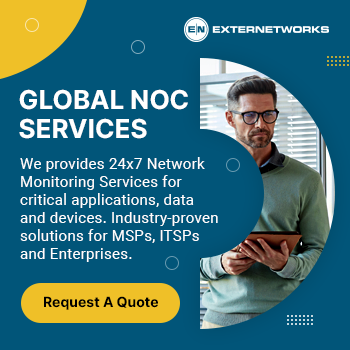The Future of Managed IT Services and How They Will Continue To Evolve

Managed IT services have become increasingly popular over the last decade and play a major role in keeping businesses running. But what will the future of managed IT services look like, and how is technology changing the landscape?
The technological landscape of businesses has grown rapidly, with an increasing need for reliable IT solutions. Managed IT services provide the comprehensive care needed to ensure that all systems are up-to-date and running smoothly. As digital technologies continue to evolve, managed IT services must also adapt to stay current with industry trends and customer requirements.
Understanding how managed IT services embrace new trends and strategies can give us insight into what they will look like in the future. In this article, we’ll explore emerging trends, upcoming developments, and new opportunities available to managed IT service providers as they evolve.
What are Managed IT Services
Managed IT services are a form of outsourcing that involves the transfer of responsibility for managing and maintaining an organization’s IT infrastructure to a third-party provider. This service is designed to provide organizations with cost-effective solutions for their IT needs while providing proactive security and compliance measures. Managed IT services can include anything from network monitoring, data backup and recovery, software updates, and more.
Overview of how Managed IT services have evolved in the past and what to expect in the future
Managed IT services have come a long way since their inception in the early 2000s. Initially, they were limited to basic IT systems monitoring and maintenance, and they have evolved to include cloud computing, data backup and recovery, security management, and more.
In the near future, managed IT services will become even more comprehensive and specialized. Companies can customize their managed IT services to meet their specific needs, allowing them to focus on their core business operations while still having access to the latest technologies and services. This customization will also enable companies to reduce costs by only paying for their needed services. As technology advances, managed IT services will become more automated and efficient.
We will explore how Managed IT services have evolved over time and what trends are emerging for the future of this sector.
Advancements in automation and Artificial Intelligence
Automation of IT processes and tasks
The future of managed IT services will likely be heavily focused on automation. Businesses will reduce costs, increase efficiency, and improve customer service. Automation can help streamline the process of provisioning new services, deploying software updates, managing user accounts, and monitoring system performance and security threats. Automation tools can automate routine tasks such as patching, configuration management, and system backups.
Artificial intelligence-based security and threat detection
AI-based security and threat detection systems are already being used to detect malicious activity, identify potential threats, and protect networks from cyberattacks. These systems use algorithms to analyze data in real-time and detect anomalies that could indicate a security breach or malicious activity. As AI technology evolves, these systems will become more sophisticated and capable of detecting even the most subtle threats.
Predictive maintenance and troubleshooting
Managed IT services are becoming increasingly sophisticated and can now predict potential problems before they occur. This is done through predictive analytics, which uses data collected from the network to identify patterns that could indicate a problem in the future. This allows managed IT service providers to proactively address issues before they become major problems, reducing downtime and increasing efficiency.
Cloud computing
Increasing adoption of cloud-based services
The future of managed IT services is closely tied to the increasing adoption of cloud-based services. Cloud computing has revolutionized how businesses access and use technology, allowing them to scale up or down as needed without investing in expensive hardware and software. As a result, more companies are turning to managed IT service providers for help with their cloud-based solutions. Managed IT service providers can help businesses manage their cloud-based services, ensuring they are secure and reliable.
Cloud-based disaster recovery and data backup
As businesses increasingly rely on technology, reliable disaster recovery, and data backup solutions are becoming more important than ever. Managed IT services are beginning to offer cloud-based disaster recovery and backup data solutions that provide organizations with a secure, cost-effective way to protect their data in the event of an emergency. These services allow businesses to store their critical data in the cloud, ensuring it is always available and secure.
Cloud-based collaboration and communication tools
Managed IT services are closely tied to developing cloud-based collaboration and communication tools. These tools are becoming increasingly popular among businesses as they enable teams to work together more efficiently and effectively. Cloud-based tools allow users to access data from any device, anywhere in the world, making them ideal for remote working environments. As these tools become more sophisticated, they will continue to evolve and become more powerful, allowing businesses to take advantage of their capabilities.
The Internet of Things (IoT)
IoT devices becoming more prevalent in businesses
The Internet of Things (IoT) is becoming increasingly prevalent in businesses, and this will continue to shape the future of managed IT services. IoT devices are connected to the internet and can collect data, monitor systems, and automate processes. This means that managed IT service providers can offer more comprehensive solutions for businesses, such as predictive analytics and automated maintenance.
IoT providers will be able to manage, monitor, and secure these devices
As more and more devices become connected, it’s becoming increasingly important for companies to manage, monitor, and secure them. This is where managed IT services come in. These services can be used to ensure that all connected devices are running smoothly and securely, as well as provide businesses with the ability to respond quickly to any issues that may arise.
IoT analytics can be used to gain more insights into business operations
Managed IT services providers increasingly leverage IoT analytics to provide their customers with real-time data on their operations. This data can be used to identify areas of improvement, optimize processes, and even predict future trends. As the IoT continues to grow, managed IT service providers must stay ahead of the curve to remain competitive. This means investing in the latest technologies and developing new strategies for leveraging IoT analytics.
Cybersecurity and compliance
The Increasing complexity of cyber threats
Cyber threats are becoming more complex and challenging to manage as the world becomes increasingly connected. Companies need to protect their data and systems from malicious actors and comply with various regulations and standards. Managed IT services can help companies stay ahead of the curve by providing comprehensive security solutions such as firewalls, antivirus software, and other security measures.
More stringent regulatory requirements
As technology continues to evolve, so too do the regulatory requirements that govern the use of IT services. As businesses increasingly rely on managed IT services, they must be aware of the ever-changing regulations and ensure that their service providers comply. This means that managed IT service providers must stay up-to-date with the latest regulations and adjust their offerings accordingly.
Managed IT providers will have to stay ahead of the curve on cybersecurity and compliance
Staying up-to-date on the latest threats and regulations and providing solutions that meet these requirements. Companies should look for managed IT providers committed to staying ahead of the curve to ensure their data is secure. This includes ensuring that data is stored securely and that systems are regularly monitored for potential threats.
Remote work and collaboration
Remote work becoming more prevalent
As the world moves towards a more digital-first approach, managed IT services will continue to evolve and become more important. With remote work becoming increasingly popular, businesses rely on managed IT services to ensure their employees have the tools they need to stay productive and connected. Managed IT services can provide access to cloud-based applications, secure remote access solutions, and other technologies that enable remote work.
Managed IT providers will have to provide more robust support for remote workers
As more businesses move to remote work, they will need stronger customer support. This includes providing access to the latest technologies and tools and offering technical assistance when needed. Managed IT services can also help businesses ensure that their remote workers have the necessary security measures to protect their data and systems.
Virtual and augmented reality technology for remote collaboration
This technology allows teams to collaborate in virtual environments, share documents, discuss projects, and even hold meetings without being physically present. Managed IT services can help businesses implement these technologies and ensure they are secure and reliable.
Conclusion
The future of managed IT services is bright. As technology evolves, so will the need for managed IT services. Companies will continue to rely on managed IT service providers to provide them with the expertise and resources necessary to keep their systems up-to-date and running smoothly. Managed IT service providers will also be able to offer more specialized services such as cloud computing, data analytics, security services, and more. As the demand for these services grows, managed IT service providers will be able to offer more comprehensive solutions that can help businesses stay competitive in an ever-changing market.
In addition, managed IT services will become more integrated with other business processes, allowing companies to leverage their IT resources better and optimize their operations. With the right managed IT, service provider, companies can rest assured that their technology needs are being taken care of and that they are staying ahead of the curve.
Why Choose Us
ExterNetworks is a leading managed IT services provider that offers comprehensive solutions for businesses of all sizes. With our team of experienced professionals, we provide businesses with the expertise and resources necessary to keep their systems running smoothly and efficiently. We understand that every business is unique and has different IT needs, so we offer customized solutions tailored to meet your specific requirements. We offer a wide range of services, including cloud computing, network security, data backup and recovery, system monitoring, and more. Our team is dedicated to providing businesses with the best possible service and support, so you can rest assured that your IT infrastructure is in good hands.
Also Read:
What are Managed IT Services and Why do Businesses Need Them?
Common IT Challenges That Managed IT Services Can Help Solve
The Benefits of Partnering with a Managed IT Service Provider
How to Choose the Right Managed IT Service Provider for Your Business





